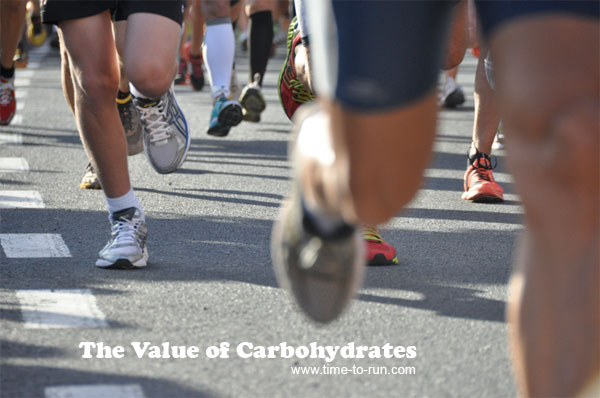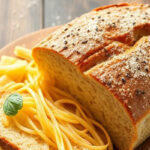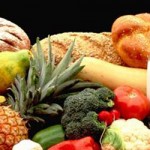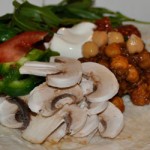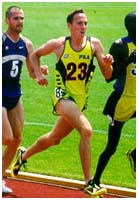The need for carbohydrates – Running for over 90-120 minutes at race pace can totally deplete glycogen stores even if well loaded beforehand.
The value of carbohydrates
This means your muscles will have to resort to fat or  protein for energy. As fat requires oxygen to burn, you will have to slow right down (or walk!), so that sufficient oxygen can reach the muscles. This is referred to as ‘hitting the wall’, quite a common phenomena for those who have run marathons. (Check out the number of walkers at the 35-38km mark!). Local muscle fatigue will result in cramping and/or heaviness of the legs and a total inability to go any faster.
protein for energy. As fat requires oxygen to burn, you will have to slow right down (or walk!), so that sufficient oxygen can reach the muscles. This is referred to as ‘hitting the wall’, quite a common phenomena for those who have run marathons. (Check out the number of walkers at the 35-38km mark!). Local muscle fatigue will result in cramping and/or heaviness of the legs and a total inability to go any faster.
Carbohydrate taken during exercise can overcome the above. Trained muscles will take up the glucose for extra energy, helping you to maintain your pace at the end of a race and therefore better your time. Carbohydrate also offsets hypoglycemia (low blood sugar levels) that occurs during high intensity racing. Since glucose is brain food, you will ultimately ‘feel’ better and put in more effort.
So what type of carbohydrate should you consume? Sports drinks are ideal as they supply fluid and carbohydrate and are absorbed quickly. Fluids are much easier to consume than solids. Solid food may cause gastric upset or sit in your stomach, leaving you feeling ‘heavy’.
The amount of carbohydrate needed is around 40 gm/hour. This amounts to around 150-250mls sports drink every 15mins (available in most distance events). Sports gels (around 20gms carbohydrate) may also be tolerated, especially if extra carbohydrate is needed towards the end of an event. A word of warning about gels: make sure you also drink plenty of fluid (2 cups per gel) or else dehydration will result.
Remember, fluid should ALWAYS be your first priority as dehydration is dangerous. If you choose other types of solid food then make sure its moderate to high glycaemic index (GI) i.e. >60, which means it will be absorbed quickly into the muscles. e.g. Ripe bananas and jelly babies. Avoid fruit juice or overdoing the fruit during the race as these contain fructose which can cause osmotic diarrhea and gastric upset, the results of which are not very pleasant!
It is essential to start consumption of fluid and carbohydrate BEFORE fatigue commences. If you wait until you’re already fatigued, it is too late. It will take a few kms before you notice the effect of the sports drink, but the difference can be huge. In fact, the benefit of carbohydrate consumed during exercise has been shown consistently in research conducted over the last decade. In addition, the combination of fluid and carbohydrate has been shown to have an additive effect on performance enhancement even in events less than 90 minutes.
So for those who thought it wasn’t possible, yes you can improve your 10km time.
More about carbohydrates:
source Time-to-Run Contributor






















